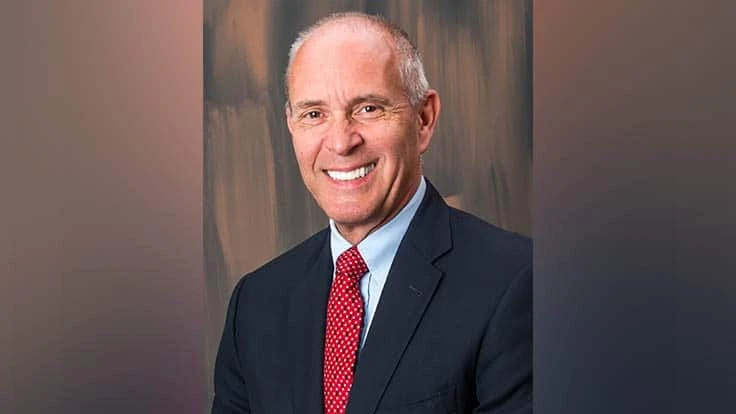Tyson Foods became one of the largest food companies in the United States to
announce that it is requiring employees to be fully vaccinated. U.S. office location employees have until Oct. 1, 2021, to be vaccinated, while all others are required to be vaccinated by Nov. 1, 2021, “subject to ongoing discussions with locations represented by unions,” the company said.
With a rise in U.S. case numbers largely due to the Delta variant of COVID-19, Tyson’s decision comes on the heels of companies such as Disney and Walmart making similar announcements.
While many food companies might be asking themselves if the vaccine mandate trend is something to consider jumping on, Dr. David Acheson, founder and CEO of
The Acheson Group (TAG), said it might not be a good fit for everyone.
“My view is, following a trend is inherently a bad thing to do just because it’s a trend,” said Acheson, a Quality Assurance & Food Safety magazine advisory board member and former internist specializing in infectious diseases. “Do it for the right reasons. Look at every aspect of this. Do not do it just because you feel like if you don't, you'll be left out.”
Quality Assurance & Food Safety magazine: Why is it important for food companies to do their part in protecting employees as much as possible from COVID-19?
Dr. David Acheson: It goes back to the environment in which food industry employees are working. And it goes back to the preventive controls and the risks that were identified in March and April 2020 when we started to see a significant uptick in cases in the food industry, particularly in poultry plants, where the nature of the business is that employees are very close together. The physical environment is one in which the risks are higher. And that was not just theoretical as we saw large outbreaks occurring in poultry plants, including Tyson and others.
QA: Plus, if employees get sick, plants may have to reduce capacity or even shut down, right?
DA: Right, exactly. It’s a very tricky line. Companies talk about the need to “do the right thing for our employees.” That's the public mantra, and it's absolutely the right one. And yet they are having those conversations [about keeping employees healthy to stay fully staffed]. If the plant gets closed, we don't make product. And if we don't make product, we're in trouble because that's what we have to do to keep going. So, we've got to do all of these things, and we've got to balance all of that. And it's extraordinarily complicated to try to get it right.
QA: Should food companies follow Tyson’s example?
DA: I talked to dozens of different companies about the vaccines when they were first launched. People wanted to know about their efficacy and their safety and what they should do about it. We created four tiers of strategy to help people think through what to do. The first was educate. Everybody should do that. It’s a corporate responsibility to educate your workforce about the vaccines. The second was facilitate. So, “I need a day off. I need three hours to go get vaccinated. Is that OK?” “Yes, it's OK. We're not going to dock your time. We'll pay you to do that.” The third is incentivize. We'll give you $100, for example, if you go get vaccinated. And then the fourth is mandate. Everybody was uniformly in with the education. Pretty much everybody got on board with facilitate. Some went in to incentivize. Putting on my medical infectious disease hat, I'm not a fan of a mandated vaccine. That doesn't mean that corporations that make those decisions are wrong, because they're looking at it from a bigger picture.
QA: What are some of the reasons you aren’t a fan of a mandate?
DA: My personal and professional belief is, a vaccine should be left up to the individual. The other side to this too is, we’ve got a massive groundswell of mandates going on, led by the government saying federal workers are going to be vaccinated. That was quickly followed by Walmart and Tyson and Disney. These are big, big, big corporations. And now we've got the military talking about it. They're going to mandate vaccinations using vaccines that were designed against viruses that aren't around anymore. We’re going to mandate vaccination with a vaccine that's not optimized for the viral strains that are in circulation at the moment. There's an illogicity there. The other part of the conversation, which is just not happening, is natural immunity. There's growing science to say that natural immunity is protective, and it's pretty robust and it lasts a decent amount of time.
QA: How can food companies help educate employees about the vaccines to help them make the best choice for themselves?
DA: One of the most successful tools I've seen is when a company takes the time to have a conversation with their workforce. We've done quite a bit of this through town hall meetings for big corporations where you’ll get thousands of people. It’s an expert talking for 15 or 20 minutes about what we know, what we don't know and some of the things to watch out for. Then we ask, “what questions do you have?” Sometimes it was funny stuff. I remember back in May 2020, I was getting questions like, “I’m planning to get married in October, do you think I should go ahead?” It’s a really legitimate life question. You try to answer that and sort of say, “Well, here's what we can predict, and here's what we think. And if you do decide to do it, here's the precautions you can take."
Editor's Note: You can read recent columns from Acheson on topics such as COVID-19, recalls and traceability by following the links.






